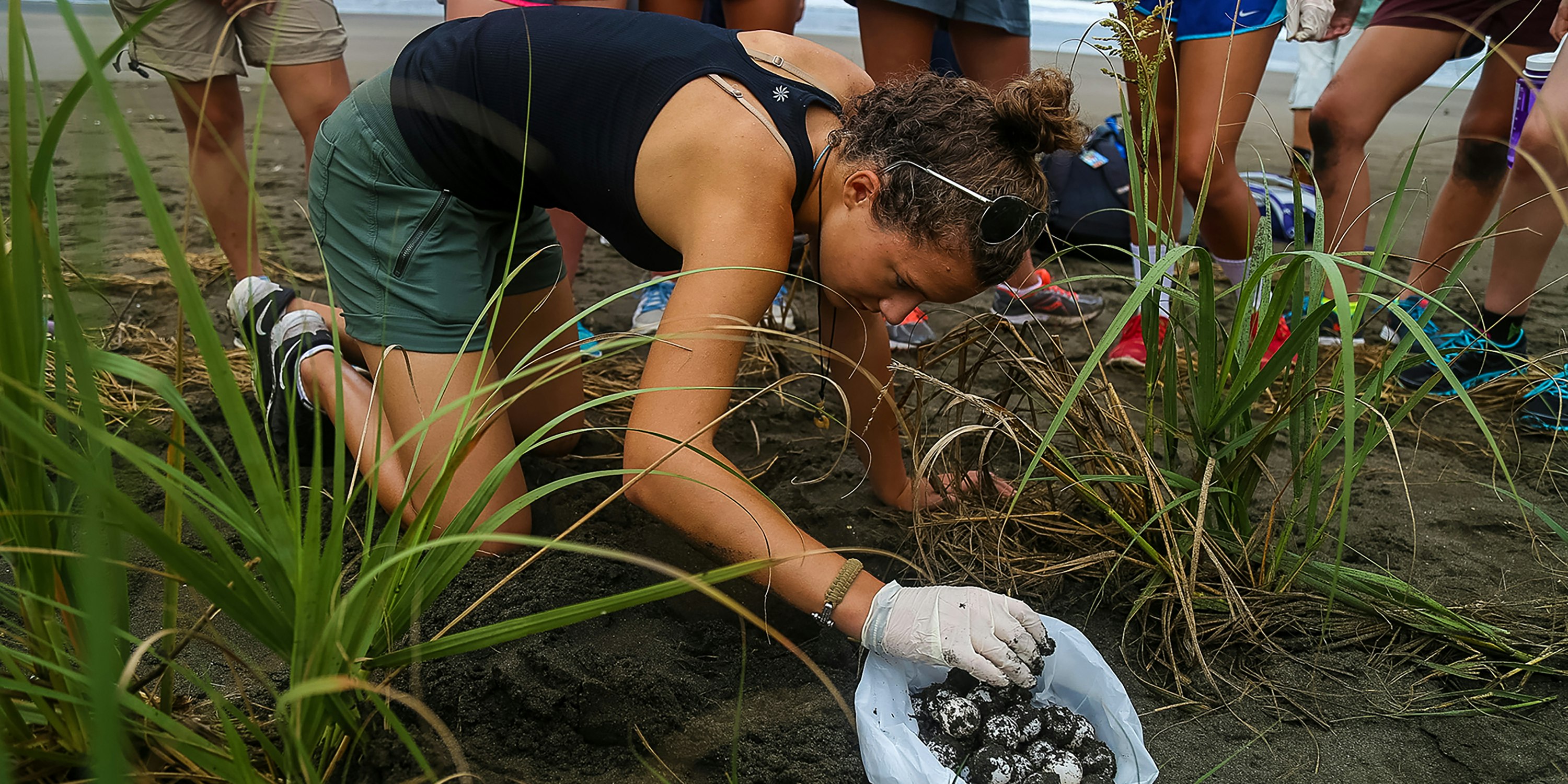Why Choose the Costa Rica: Turtle Conservation Program for College Students?
This Rustic Pathways program is designed for college students seeking meaningful field experience, environmental impact, and authentic cultural immersion in Costa Rica. Here’s what makes it stand out:
- Protect endangered sea turtles through nightly patrols, hatchery work, and conservation projects at the Camaronal Wildlife Refuge
- Earn up to 26 community service hours while supporting marine wildlife and sustainability initiatives
- Surf, snorkel, and explore Costa Rica’s Pacific coastline, learning about local ecosystems and biodiversity
- Experience authentic culture through woodworking classes with local artisans and community engagement
- Travel with fellow college students under the guidance of experienced Rustic Pathways leaders focused on safety, learning, and global impact





